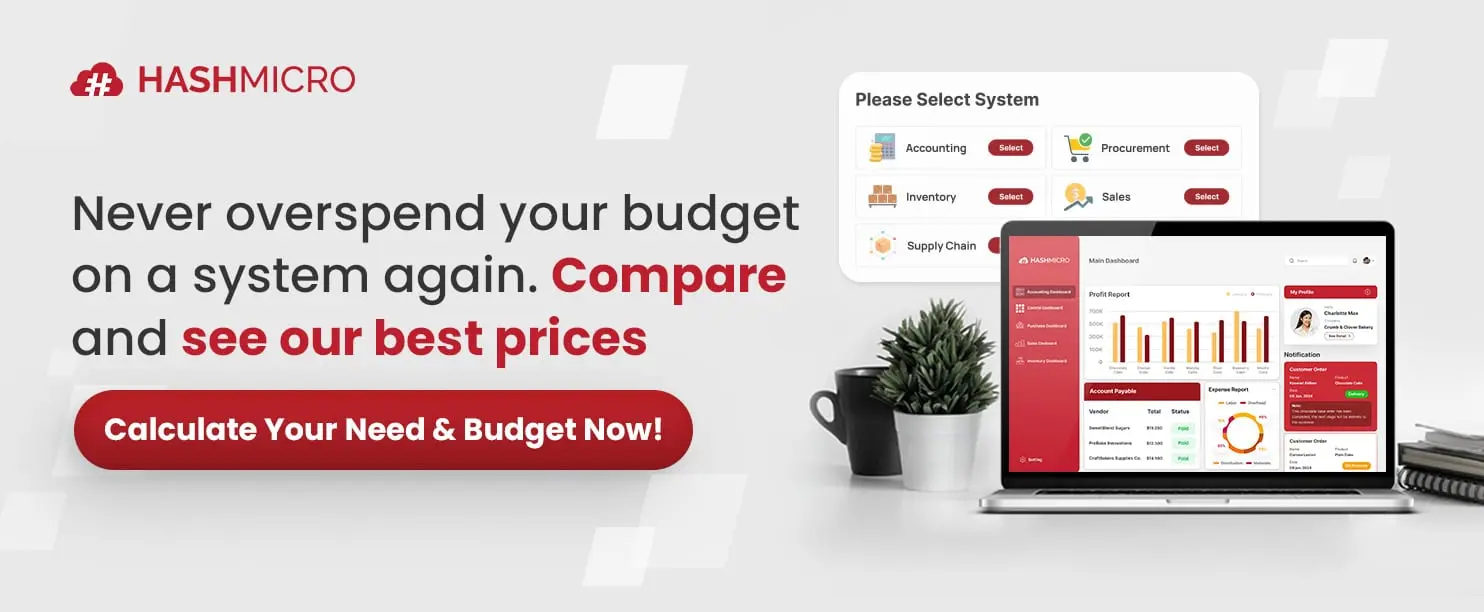Imagine managing planting, harvesting, stock, and agricultural warehouses without an integrated system. Data inconsistencies and manual errors can hinder productivity. As a result, harvest yields are not maximized, and distribution processes become inefficient.
In Malaysia, many agribusinesses still rely on separate record-keeping systems. because of this, stock control and crop tracking often become difficult. Meanwhile, the global agriculture ERP market is projected to grow from RM191.3 billion in 2024 to RM212.5 billion in 2026.
In this article, we reviews 10 agriculture ERP software options in Malaysia for 2026. You’ll see and kearn what each tool is best suited for. In addition, we explain the key features ypu should prioritize when managing farms warehouse, and distribution together. The goal is to help you shortlist based on real operations, not feature lists.
Key Takeaways
|
What is Agriculture ERP?
Agriculture ERP is an integrated system that helps agribusinesses manage operations within one platform. instead of using separate tools, companies can coordinate farming, inventory, finance, and distribution in a centralized system.
This software integrates key operational elements, including crop monitoring, field activity management, yield warehouse management, and resource planning, into a single digital ecosystem. It supports structured agricultural workflows by aligning production data, procurement, and inventory control with predefined standards.
What are The Benefits of Agriculture ERP Software?
Agricultural ERP software offers many tools to transform agricultural operations. These solutions bring significant benefits, making agricultural management more efficient. The main benefits of agricultural ERP for business operations are as follows:
1. Operational management efficiency
First, coordination between planting, harvesting, and distribution activities becomes more organized and clear with the support of agricultural automation. Each division operates based on clear schedules and aligned data, allowing daily activities to run more efficiently with minimal overlap.
2. More integrated supply chain
Distribution becomes more predictable, because inventory data connects directly with logistics, shipment timing improves. in addition, product arrive in better condition and match market demand more accurately.
3. Full control over inventory
Stock levels of items such as fertilizers, seeds, and harvests can be accurately monitored at all times. The risk of stock shortages or surpluses can be avoided. Purchasing and expenditure planning have become more targeted.
4. Higher financial accuracy
All cash flows, financing, and expenditures are recorded consistently and neatly. As a result financial reports can be accessed without manually collecting data. And by that, business projections become more realistic and are based on actual figures.
5. Easier regulatory compliance
All processes are documented and ready for audit at any time without the hassle of reorganizing data. Compliance with local and international standards is maintained. This reduces compliance risk of violations from the start.
6. More transparent product tracking
products can be traced from planting to delivery. Because of this transparency, consumers and business partners trust can increases. The company’s reputation in the market also becomes stronger.
Top 10 Agriculture ERP Software Solutions in Malaysia
We have compiled a list of the 10 best agricultural ERP software solutions to help agribusinesses in Malaysia optimize crop planning, inventory tracking, and agricultural operations. Each system has different strengths and limitations, so your final decision should depend on operational complexity, budget, and scalability needs.
Explore our top recommendations to simplify agricultural management, improve inventory control in your agricultural warehouse, and enhance overall efficiency through smart agricultural software solutions.
1. HashMicro Agriculture ERP
HashMicro provides an agriculture management platform to help agribusinesses in Malaysia manage their farming activities more efficiently. The system automates processes from the field to the distribution of produce. It is suitable for businesses that want to accelerate the digitization of their operations.
With more than 2,000 clients, HashMicro supports inventory management, agriculture warehousing, and tracking of farming activities. Its local experience makes it relevant to the Malaysian market. Its modules are flexible for various types of agricultural businesses.
HashMicro’s key strengths include an easy-to-use interface and comprehensive features. The system supports real-time data monitoring and integrated reporting. This solution is ideal for enhancing the productivity and accuracy of your agricultural operations.
Here are the key features of HashMicro’s Agriculture ERP Software:
- Farm Activity & Asset Management: Manage all agricultural processes such as fertilization, harvest time, and equipment maintenance automatically. This system also records data on land conditions and agricultural infrastructure in real-time.
- Smart Inventory & Warehouse Control: Accurately monitor input stocks such as seeds, fertilizers, and harvest outputs using agriculture inventory software. Support agriculture warehouse management through stock alerts and batch tracking.
- IoT-Enabled Monitoring (Soil, Weather, Equipment): Automatic integration of weather and soil sensors displays current field conditions. Receive notifications when entering important phases such as maintenance or harvest.
- Automated Scheduling & Notifications: Automated scheduling for fertilization, harvest, and land maintenance. The system also sends reminders to ensure no important steps are missed.
- Comprehensive Financial Dashboard: All farming cost data, including expenses and inventory, is presented in an easy-to-read financial dashboard. Supports quick profitability analysis
- Crop Planning & Traceability: Plan crop rotation, land and scheduling, and monitor each production stage with documented data. All agricultural output data can be traced for compliance and audit purposes.
| Pros | Cons |
|
|
If you’re interested in learning more about how HashMicro Agriculture ERP Software can help you optimize crop planning, manage inventory accurately, and improve visibility across your entire agriculture operation, click the banner below to explore the full feature set and pricing options.
2. Agrivi
Agrivi is a farm management platform developed to help monitor agricultural operations across various crop production stages. It supports activity tracking, farm planning, and provides some analytical insights related to farming practices.
The software is primarily suitable for farmers or agricultural managers who need a basic digital tool to organize field tasks. Its scope may not fully address broader enterprise-level operations or deep financial integrations.
Key Features:
- Crop planning and activity tracking
- Field-level recordkeeping
- Basic farm analytics
| Pros | Cons |
|
|
3. FarmERP
FarmERP is a digital agriculture platform designed to support planning, monitoring, and reporting across different stages of agricultural production. It provides tools for crop management, data entry, and basic resource tracking.
The software is generally used by farms that require structured recordkeeping and centralized data. It focuses more on standard operations without offering highly specialized features for finance or large-scale processing.
Key Features:
- Crop planning and scheduling
- Input and resource tracking
- Basic reporting and dashboards
| Pros | Cons |
|
|
4. AgriWebb
AgriWebb is a livestock management platform primarily designed to help farmers organize and record day-to-day farm operations. It focuses on tracking animal health, pasture usage, and compliance requirements.
The software is commonly used by livestock-focused businesses that require simple, mobile-accessible recordkeeping. Its coverage is more relevant for animal farming than for crop production or broader agribusiness operations.
Key Features:
- Livestock tracking
- Grazing and pasture management
- Compliance documentation
| Pros | Cons |
|
|
5. Aptean Agriculture ERP
Aptean Agriculture ERP is an enterprise software solution that provides support for operational tracking in agricultural production. It includes modules for inventory, quality control, and compliance to help organize daily activities.
The platform is used by businesses that require structured data for batch management and product handling. Its usage is generally focused on medium to large agricultural enterprises with basic ERP needs.
Key Features:
- Batch and inventory tracking
- Basic compliance tools
- Operational data organization
| Pros | Cons |
|
|
6. Trimble Ag Software
Trimble Ag Software is an agriculture management solution that provides tools for farm planning, mapping, and field data tracking. It is mainly used to support operational decisions and recordkeeping in crop production.
The software is commonly adopted by farms that need spatial mapping and basic activity documentation. While it includes some precision agriculture features, its core focus remains on field data organization.
Key Features:
- Field mapping and GPS tracking
- Activity and input records
- Basic weather integration
| Pros | Cons |
|
|
7. AgroSense
AgroSense is a digital farming platform that collects and analyzes agricultural data from various sources. It is typically used to monitor environmental conditions and visualize farm performance over time.
This software is better suited to users who prioritize data monitoring over full-scale operational management. It may complement existing systems, but it does not provide complete ERP-level features for agriculture businesses. If you want to track the finances, you need to use a farm accounting system for agribusiness.
Key Features:
- Environmental data tracking
- Farm performance visualization
- Sensor integration support
| Pros | Cons |
|
|
8. Bdtask Agro ERP
Bdtask Agro ERP is a software system designed to manage basic agricultural operations such as production tracking, inventory, and sales records. It targets small to mid-sized agribusinesses that require digital tools to oversee routine processes.
The platform is generally used for organizing agricultural inputs and outputs in one place. Its scope focuses more on general data handling rather than providing deep analytics or agricultural automation.
Key Features:
- Production and sales tracking
- Inventory management
- User-based role access
| Pros | Cons |
|
|
9. AgWorld
AgWorld is a cloud-based farm management tool designed to help growers, agronomists, and contractors plan and track their farm operations. It is often used to document field activities, manage crop inputs, and share information among teams.
This platform is suitable for those who require a centralized place to store and manage agronomic data. While useful for planning and recordkeeping, it may not offer extensive features for financial or supply chain management.
Key Features:
- Task and crop input planning
- Field data collection
- Multi-user collaboration
| Pros | Cons |
|
|
10. AgriXP
AgriXP is a web-based farm recordkeeping tool that helps users document field activities, input usage, and crop performance. It is primarily used by small to medium-sized farms seeking basic operational transparency.
The platform focuses more on documentation rather than advanced analytics or automation. It is generally suitable for farms that need to track basic operational data without implementing a full ERP system.
Key Features:
- Field activity recording
- Input and output tracking
- Basic yield monitoring
| Pros | Cons |
|
|
Key Features in Agriculture ERP Software
When choosing agriculture ERP software, business owners need to understand the key features that can improve efficiency and control in the field, warehouse, and supply chain through agriculture inventory software.
1. Smart farm scheduling & planning
A good ERP system organizes agricultural activities drom planting to harvest. For ecample, it assigns labor, equipment, and land usage automatically. As a result, resources, Land, labor, and time usage efficiency become more efficient.
2. End-to-end inventory & supply chain control
The system should monitor stock from procurement until distribution to the market. As an agriculture inventory software solution, this system should support for agriculture warehouse management with alerts and batch tracking. Prevents stock shortages and waste.
3. Integrated financial insights
Financial module should provides real-time financial reports, including cash flow, costs, and margins. Data is available in an easy-to-analyze format. Facilitates financial decision-making based on verified figures.
4. Live analytics & interactive dashboard
Displays real-time agricultural operational data for quick response to field conditions. Intuitive dashboards provide summaries of performance and critical activities. Helps managers respond proactively to challenges.
5. Regulatory compliance & traceability module
Regulatory tracking ensures all standards are documented from the initial stage to distribution. As a result, audits become easier and product origins remain tranparent. Enhances transparency and trust among business partners.
How to Choose the Right Agriculture ERP Software?
Choosing the right agriculture software system depends on your business needs and technological readiness. Use the following criteria to help evaluate the available options.
1. Business requirements alignment
First, ensure that the selected software is suitable for your type of business, whether it focuses on crops, livestock, or agricultural exports. This compatibility affects the effectiveness of its use. The right choice will accelerate the field team’s adaptation.
2. Customizability and scalability
Select a system that is flexible enough to adapt to current needs and future business growth. Scalability becomes important as production planning for higher volumes grows. This prevents recurring system migration costs.
3. Ease of use and training
A simple interface facilitates daily operations without complex technical training. The availability of guides or training support also speeds up the adoption process. Your team does not need to rely entirely on the vendor.
4. Integration with existing tools
Choose an ERP that can connect directly with other devices or software, such as accounting, IoT, or warehousing. This integration speeds up data exchange. Processes between divisions also become more synchronized.
5. Support and local compliance
Finally, verify that the vendor has local support and understands Malaysian agricultural standards and regulations. This facilitates the implementation and audit processes. The system will also be better prepared to deal with policy changes.
Conclusion
Agriculture ERP software plays a critical role in modern agribusiness. Because the industry faces unpredictable challenges, and companies need accurate data and integrateg operations.
By implementing the right agriculture ERP system, business improve visibility, reduce costs, and increase productivity. This ensures the system fits its operations and supports long-term performance.
Before deciding, prioritise systems that match your daily workflow and can scale with your operation. When the system supports real processes, teams spend less time reconciling records and more time improving productivity and planning.
FAQ About Agriculture ERP Software
-
What is the best software for farmers?
The best software for farmers depends on the size and needs of the farm. For integrated and automated operations, HashMicro Agriculture ERP is a strong option as it covers planning, inventory, finance, and warehouse management. Other tools like AgriWebb or FarmERP may suit smaller or more specific operations.
-
What are the four types of ERP?
The four common types of ERP are:
– On-premise ERP: Installed locally on company hardware.
– Cloud-based ERP: Accessed online with remote data storage.
– Hybrid ERP: Combines on-premise and cloud systems.
– Industry-specific ERP: Tailored to sectors like agriculture, retail, or manufacturing. -
What is CRM in agriculture?
CRM in agriculture refers to Customer Relationship Management tools designed for agribusiness. It helps manage relationships with buyers, distributors, or cooperatives, track sales, handle communication, and improve customer service. CRM modules are often part of agriculture ERP systems.
-
Can agriculture ERP track crop yield?
Yes. Most agriculture ERP systems include farm management features that monitor planting schedules, crop cycles, and harvest results.
-
How long does agriculture ERP implementation take?
Implementation time depends on business size and complexity. Small companies may need a few weeks, while larger enterprises may require several months.




































